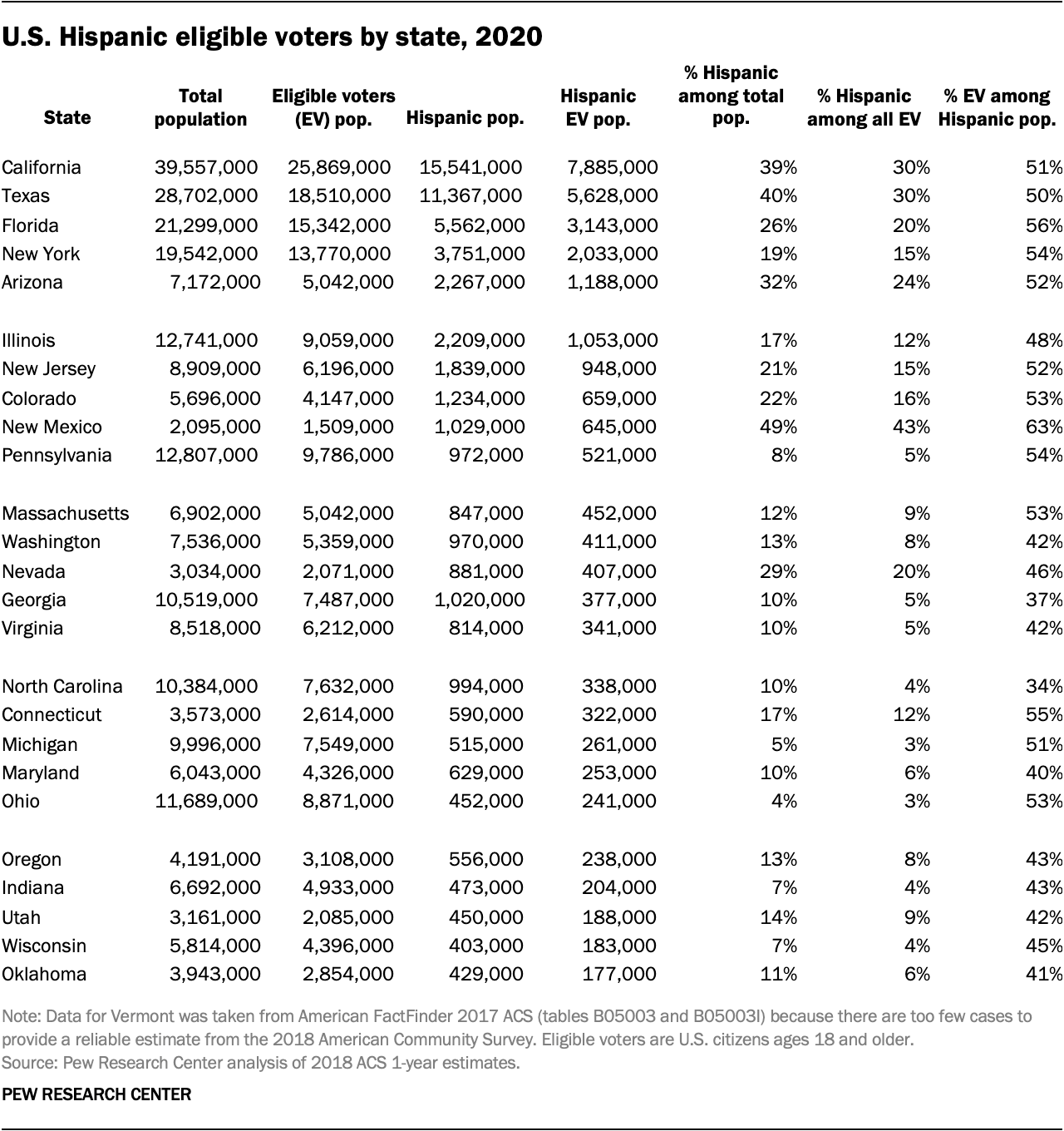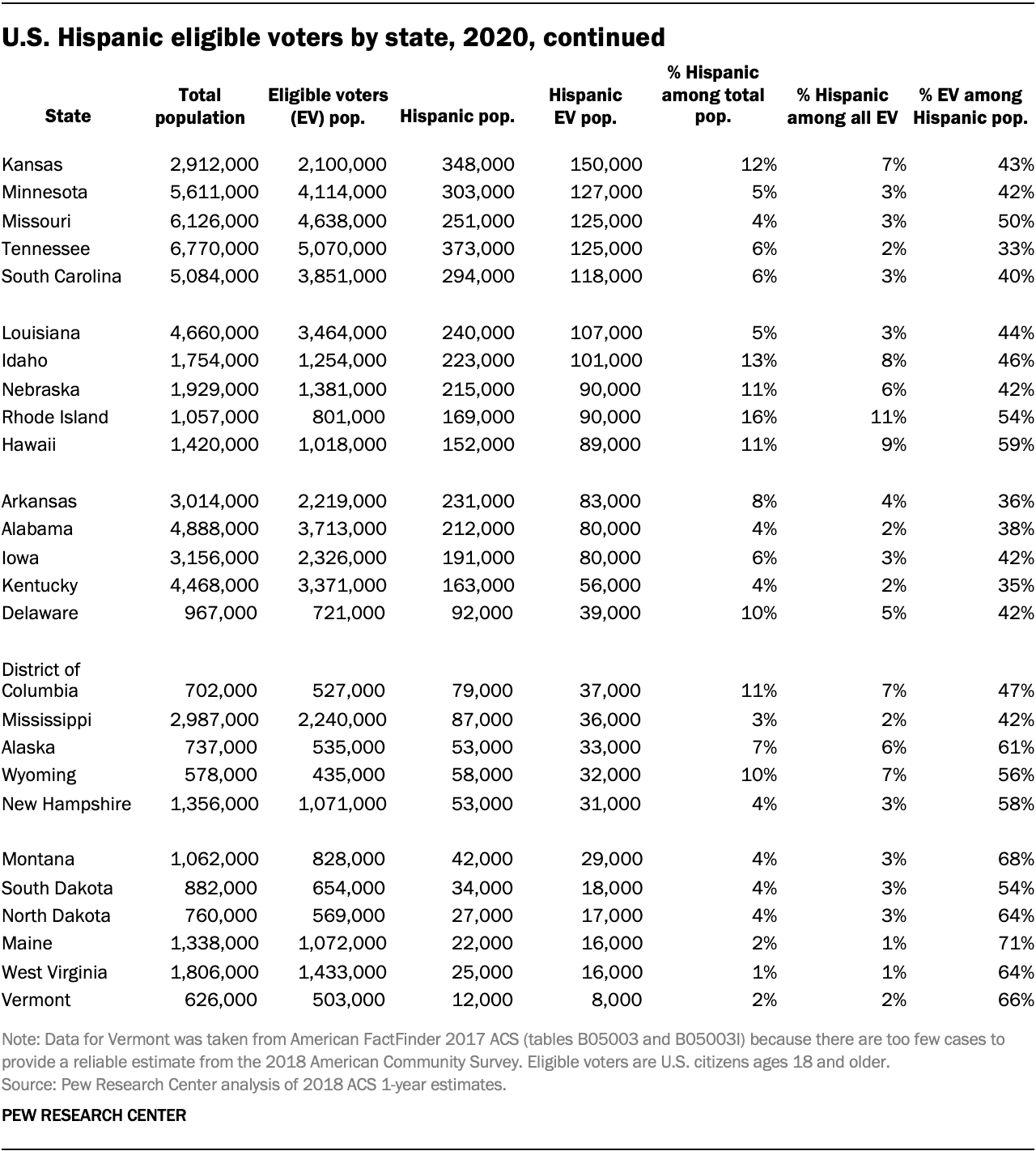Corrections (Feb. 11, 2020): An earlier version of this post mischaracterized the shares of Latino eligible voters in California and Texas. These states have among the highest shares of Latino eligible voters, but not the highest. New Mexico has the highest share at 43%. Also, due to rounding errors, an earlier version of the table titled “U.S. Hispanic eligible voters by state, 2020” included several incorrect percentages. A previous version of the attached topline gave incorrect sample sizes for a question on voter registration status, coded “REG”; some of these percentages have changed. The topline also included incorrect sample sizes for our party lean question, coded “PARTYLN”; these percentages have not changed.
As the first 2020 primaries and caucuses near, the vast majority of Latino registered voters who are Democrats or lean toward the party see the 2020 presidential election results as of particular importance, and over half have a good or excellent impression of their own party’s candidates, according to a national Pew Research Center survey of Latino adults conducted in December.
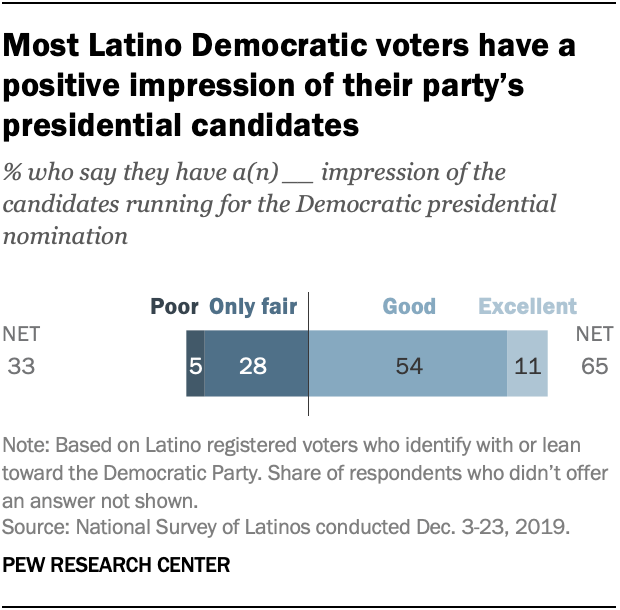
Among Latino registered voters, almost nine-in-ten Democrats and Democratic leaners (87%) say it really matters who wins the White House.
When asked about candidates seeking the Democratic presidential nomination, a majority of Latino Democratic and Democratic-leaning voters say they have a good (54%) or excellent (11%) impression of them. A third say they have an only fair (28%) or poor (5%) impression of the candidates. These views are on par with those among all Democratic and Democratic leaning registered voters in September 2019 on the American Trends Panel.
How we did this
For this analysis we surveyed 3,030 U.S. Hispanic adults in December 2019. This includes 2,094 Hispanic adults who were members of Pew Research Center’s American Trends Panel (ATP), an online survey panel that is recruited through national, random sampling of residential addresses. It also includes an oversample of 936 respondents sampled from Ipsos’ KnowledgePanel, another online survey panel also recruited through national, random sampling of residential addresses. Recruiting panelists by phone or mail ensures that nearly all U.S. adults have a chance of selection. This gives us confidence that any sample can represent the whole population (see our Methods 101 explainer on random sampling), or in this case the whole U.S. Hispanic population.
To further ensure that this survey reflects a balanced cross-section of the nation’s Hispanic adults, the data is weighted to match the U.S. Hispanic adult population by gender, nativity, Hispanic origin group, education and other categories. Read more about the ATP’s methodology.
Here are the questions used for this report, along with responses, and its methodology.
Democrats hold a nearly two-to-one advantage among Latino registered voters. About 62% identify with or lean toward the Democratic Party, while 34% affiliate with or lean to the Republican Party. Democrats also hold an advantage when it comes to party image. About half (53%) say the Democratic Party has more concern for Latinos than the Republican Party, while 31% say there is no difference between the two parties. Just 15% say the GOP has more concern for Latinos than the Democratic Party.
For November’s general election, a record 32 million Latinos are projected to be eligible to vote, exceeding the number of black eligible voters for the first time.
Overall, Latino registered voters hold negative views of President Donald Trump and the nation’s direction, with views sharply divided along party lines.
About two-thirds of Hispanic registered voters (68%) disapprove of the job Trump is doing as president, including 51% who disapprove very strongly. The 30% of Hispanic voters who approve of Trump includes 23% who approve strongly.
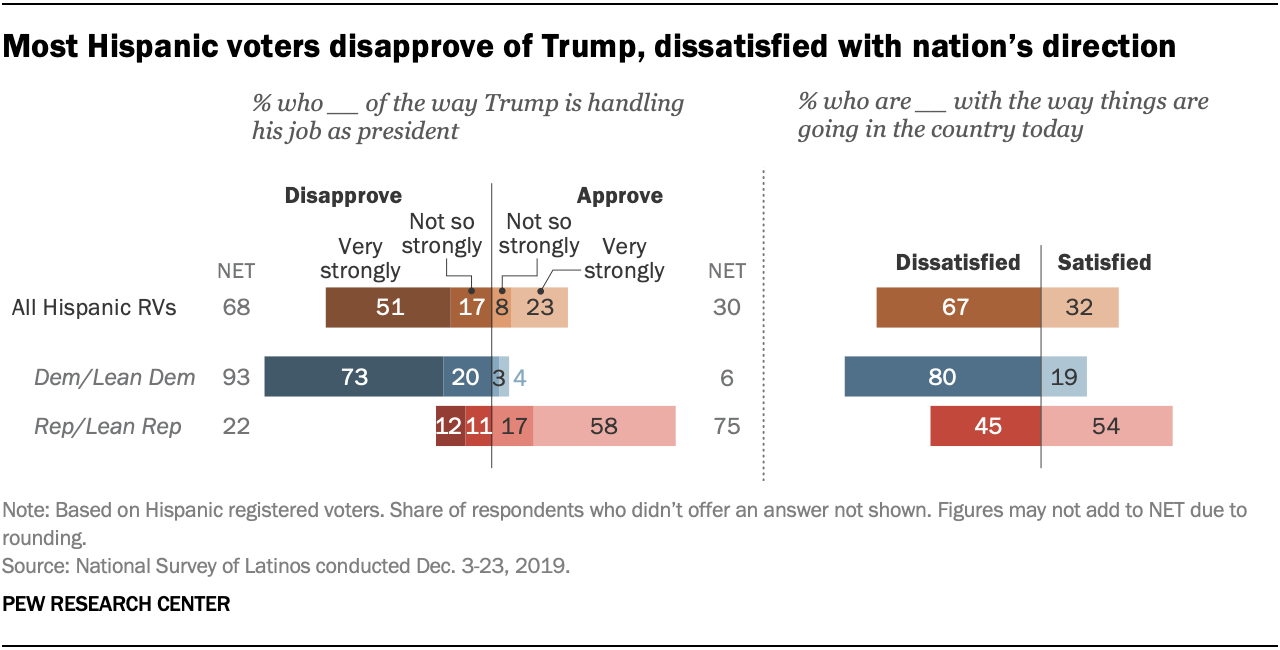
As with the U.S. public overall, views of Trump’s job performance among Latino registered voters are tied to partisanship – 93% of Democrats disapprove of Trump’s job performance, with 73% disapproving very strongly. Meanwhile, among Republicans, 75% approve of Trump’s job performance, with 58% approving very strongly.
Similarly, satisfaction with the nation’s direction is tied to party identification. Overall, 67% of Latino registered voters say they are dissatisfied with the way things are going in the country today. But among Democrats, 80% say they are dissatisfied with the nation’s direction, compared with 54% of Republicans who say they are satisfied.
Latinos and the Democratic presidential primaries
Latino Democrats may have a greater impact on their party’s presidential nomination process this year than in 2016 because of changes to the primary calendar. California, where about 26% of all Latino voters in the U.S. live, moved up its primary to Super Tuesday on March 3, three months earlier than in 2016. Three other states with smaller but potentially important Latino eligible voter populations moved up their primaries to Super Tuesday: North Carolina, Utah and Maine. (One state, Georgia, moved back its primary to after Super Tuesday.)
Overall, an estimated 56% of Latino eligible voters live in states that have a Democratic primary or caucus on or before Super Tuesday this year, up from 29% in 2016, according to an analysis of 2018 and 2016 American Community Survey data.
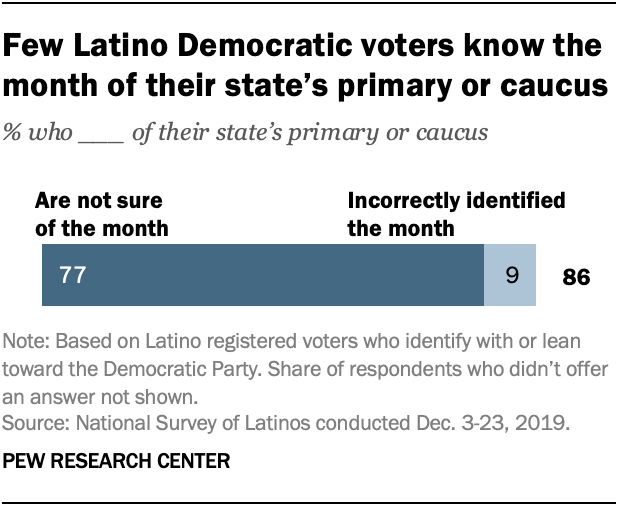
Nevada has fewer Latino eligible voters (400,000) than some states, but its Feb. 22 caucuses make it the first state in the primaries where Latinos make up a significant share (20%) of eligible voters. California is home to 7.9 million Latino eligible voters, followed by Texas (5.6 million). Latinos make up 30% of eligible voters in both of these states, among the highest shares in the nation. Each of these states has primaries on or before Super Tuesday this year.
It remains to be seen how many Latino Democratic voters will participate in a Democratic primary or caucus. When asked to identify the date of their state’s primary or caucus, 86% say they are either unsure of the month (77%) or incorrectly identified the month (9%).
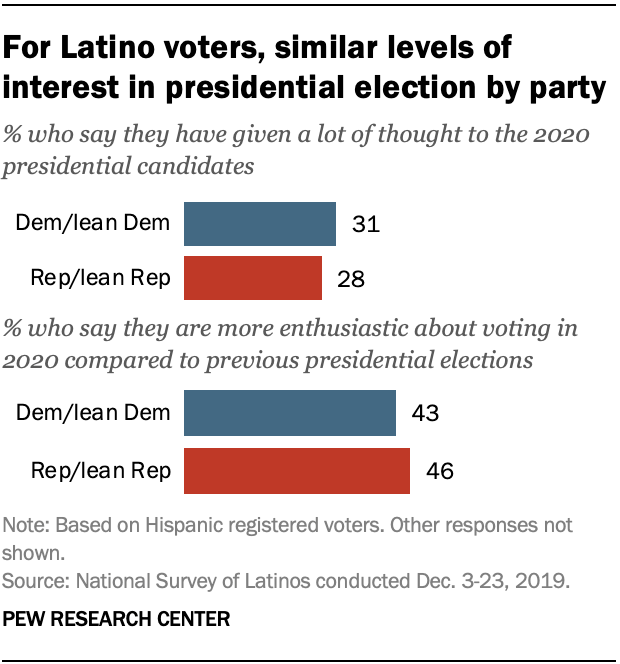
Historically, relatively few registered voters in the U.S. participate in presidential primaries or caucuses – around 15% in most years. While no comprehensive data exists on Latino turnout in these elections, Latino voter turnout rates in general elections have lagged other groups, including in the 2018 midterms when turnout surged among Latinos and other racial and ethnic groups.
About three-in-ten Latino Democratic voters (31%) say they have given a lot of thought to who is running for president in 2020, and a similar share of Republican voters say the same. Comparable shares of Democrats (43%) and Republicans (46%) say they are more enthusiastic about voting this year than in previous presidential elections.
Note: See the questions used for the report, along with responses, and its methodology.
